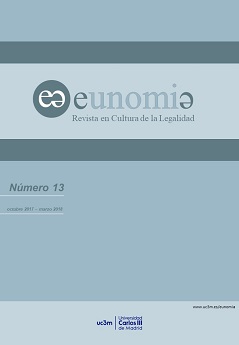From referendum to secession – The Québécois process of accession to sovereignty and its teachings with respect to self-determination
Abstract
As a result of the two referenda on sovereignty held in 1980 and 1995, Quebec has somehow become something of a figurehead for western democracies. It represents a modern developed state seeking national independence, not in time of war or because of serious political oppression, or to end colonial dependence in its territory or rid itself of an antidemocratic political system, but rather and above all by taking this path for cultural, identity, linguistic and economic reasons. In this regard, and notwithstanding the fact that both referenda failed to bring independence, it is still fair to grant the Québéquois nation a pioneering role in terms of recognising the right of minority nations to secede. In adopting this approach, this article looks at the Québéquois process of accessing sovereignty and the lessons that it can offer, in this regard, to a multinational Spain.
Downloads
Eunomía. Revista en Cultura de la Legalidad is a duly registered journal, with EISSN 2253-6655.
The articles published in Eunomía are –unless indicated otherwise– under a Creative Commons Attribution-No Derivative Works 3.0 Spain license. You can copy, distribute and communicate them publicly as long as you cite their author and the journal and institution that publishes them and do not make derivative works with them. The full license can be consulted at: http://creativecommons.org/licenses/by-nd/3.0/es/deed.es




